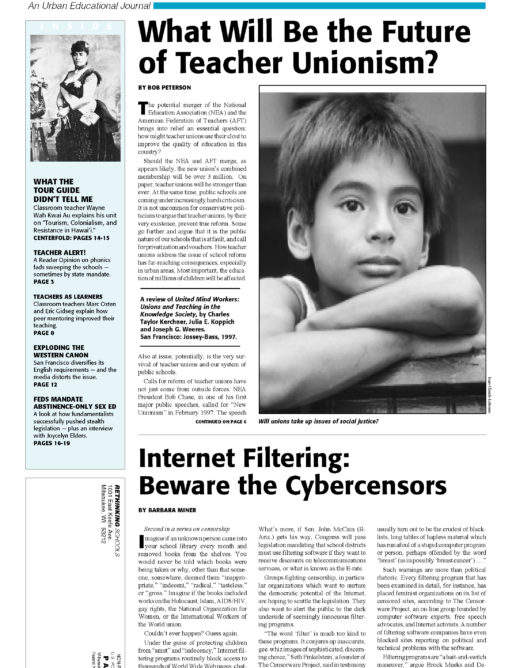Preview of Article:
The Hows and Whys of Peer Mentoring
The primary goal of the peer observation project is to rethink the way we do things and adapt to changing times, students, and circumstances. The benefits of observing went both ways. Not only did observed teachers get specific feedback but those doing the observing were exposed to an increased number of children of varying ages, learning styles, and academic, developmental, and emotional levels. All of us have benefited from seeing a variety of teaching methods and all have enhanced our “bag of tricks,” so to speak.
There have also been what one might call “hidden benefits.”
After a few months of observing each other, we recognized that we tended to over-prepare for the time we were observed. We wanted to impress each other and keep our “warts” hidden. As trust built, this need to appear perfect dissipated and we became more comfortable with letting down our defenses. This led to an unexpected development: Team members found that while teaching unobserved, they helped maintain their focus by pretending that someone was observing them.
Another interesting benefit was how our colleagues acted as a “reality check.” For example, one teacher said she felt as if she were always yelling at her students. The observers reported something very different. They saw a teacher who appeared to be patient and tolerant. Clearly, her own thoughts and frustration had shaded her view of her teaching. The team discussed this further and helped the teacher to focus on the reasons for her frustrations.
A third hidden benefit is that the children see their teachers practicing what they preach. We make it a point to be very open with the students about our observations and our team mentoring. In essence, we are modeling important lessons such as teamwork and learning through observation. These are the same skills we want our students to learn. Seeing their teachers struggle to improve and work with their peers is a powerful example.</p

